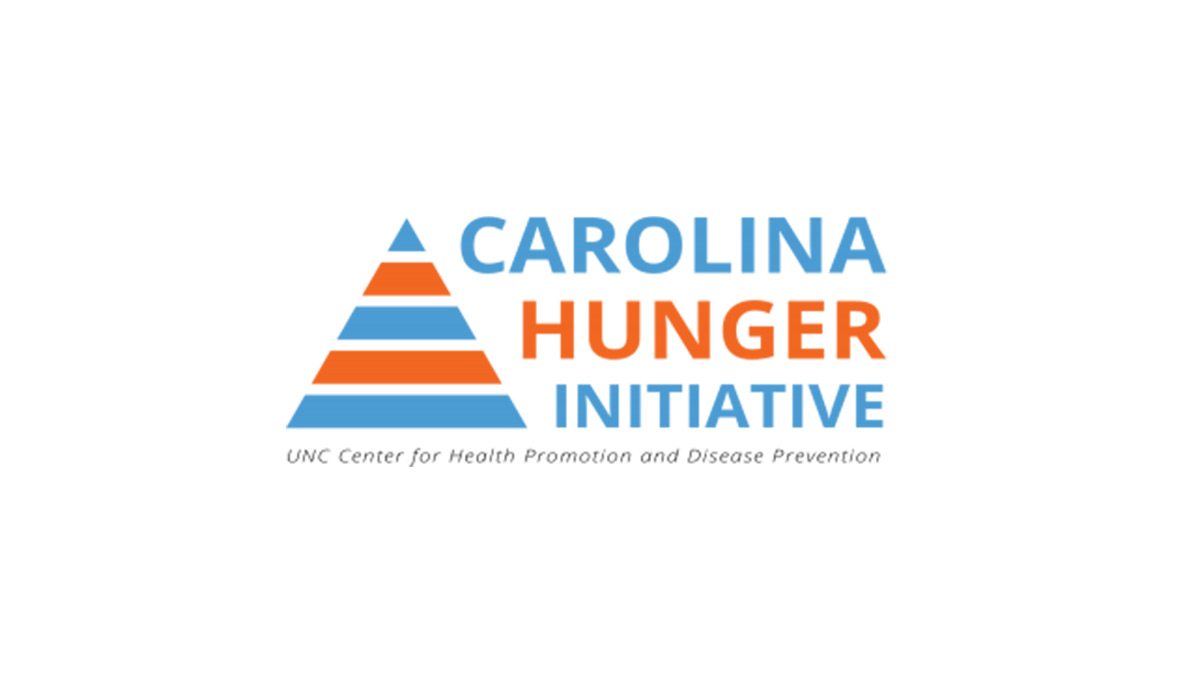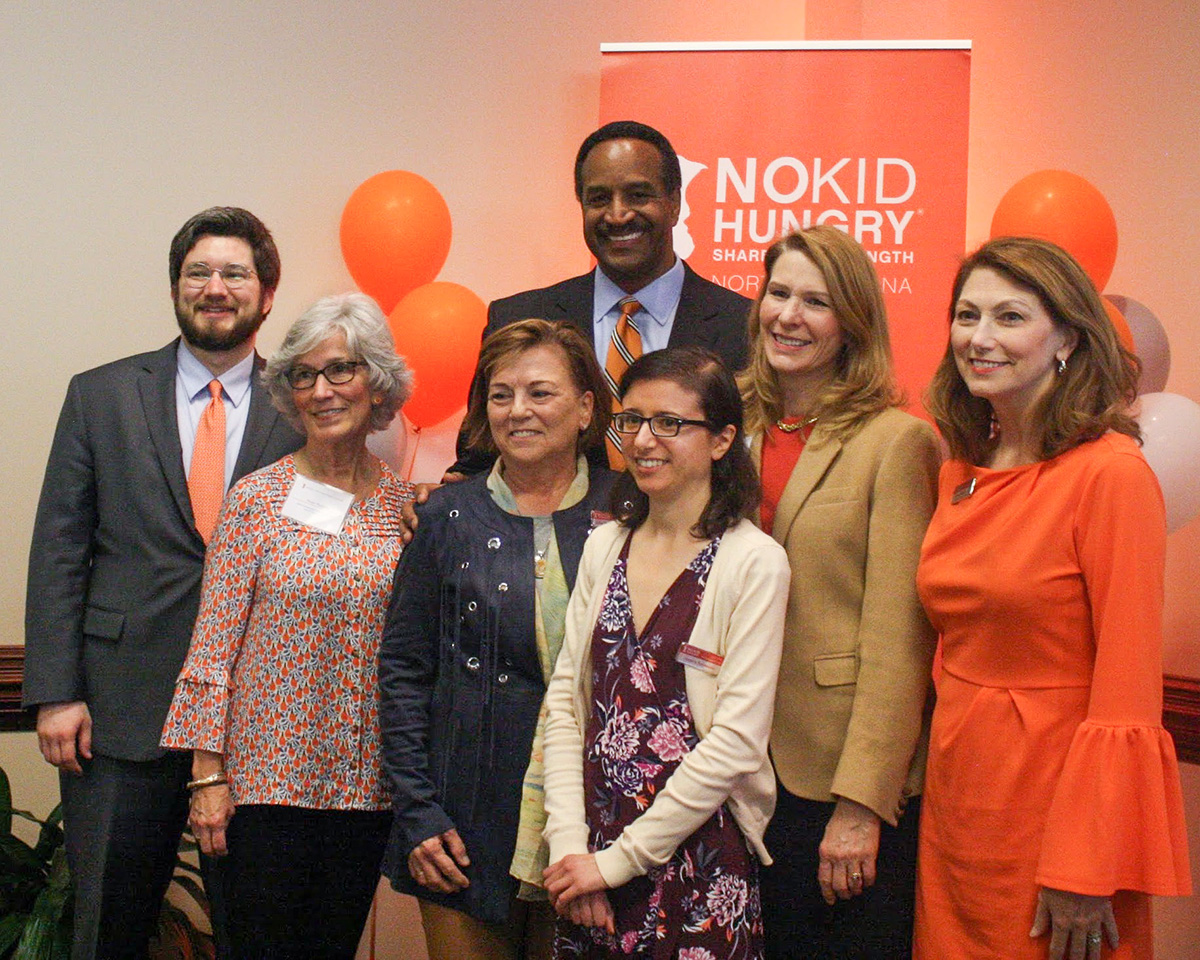No Kid Hungry NC, Carolina Hunger Initiative support meals for children during COVID-19 school closures
The Carolina Hunger Initiative generates its own funding and works to secure financial support from corporations, individuals and government grants for existing and new projects — to help all North Carolinians sustainably access healthy meals.

Nationwide, families who rely on school meals for breakfast and lunch are worried about feeding their children. In North Carolina, an organization at UNC-Chapel Hill is reducing that stress.
No Kid Hungry North Carolina was formed in 2011 in partnership with state leaders and the national No Kid Hungry campaign, a program of the nonprofit organization Share Our Strength. In 2014, No Kid Hungry NC became an initiative housed within Carolina’s Center for Health Promotion and Disease Prevention.
In normal times, members of the No Kid Hungry NC network connect children in need with nutritious food through effective but underutilized federal nutrition programs like school breakfast, summer meals and afterschool meals. They also teach families how to cook healthy, affordable meals.
During the COVID-19 pandemic that has closed schools for months on end, schools and organizations administering federal child nutrition programs and the organizations supporting them have pivoted to different types of programming. The United States Department of Agriculture has issued a series of waivers to make it easier for schools and community organizations to serve free meals through federal nutrition programs. These waivers have allowed for a variety of innovative strategies, such as drive-through pick-up of children’s meals by adults, lifting area eligibility rules to reach more families and distributing multiple days’ worth of meals at once.
On a webpage devoted to COVID-19, No Kid Hungry NC shares ways to find free, healthy meals for children 18 years old and younger, including:
- Text FOODNC or COMIDA to 877-877 to receive a text with the closest three drive-thru or pick-up sites with meals.
- Use the site’s interactive map to find drive-thru or pick-up site across the state.
- Visit nokidhungrync.org/MealUpdates for information on meals delivered by bus and other updates from school districts and community partners serving meals.
“Our team has expanded our work under a new umbrella organization called the Carolina Hunger Initiative,” said Jessica Soldavini,a graduate research assistant with HPDP and a doctoral student of nutrition and adjunct faculty member for MPH@UNC at the UNC Gillings School of Global Public Health. “We launched the Carolina Hunger Initiative during the pandemic to expand our team’s ability to support the North Carolina Department of Public Instruction that administers school and summer meal programs and to explore creative solutions to our state’s many challenges that impact our food systems. Most of our efforts in response to COVID-19 fall under that initiative, including Emergency Meals-to-You, which is a USDA demonstration project led by the Baylor Collaborative on Hunger and Poverty; it mails weekday meals to kids in rural communities.”
The Carolina Hunger Initiative partnered with Baylor to recruit and enroll North Carolina school districts and families in the program. eMTY ships 10 breakfasts and 10 lunches every two weeks directly to students’ homes while schools are closed due to the pandemic. More than 12,000 children from 20 school districts across North Carolina are receiving the meals, which will be delivered until Aug. 15.
The Carolina Hunger Initiative also is partnering with the NCDPI on the “N.C. Restaurants Feeding Kids Initiative,” which connects restaurants with school districts and community organizations that operate federal nutrition programs. The nutrition programs can use federal reimbursements to purchase the meals from the restaurants and serve them for free to children in the area. In April, the Carolina Hunger Initiative made the local news when their support of the restaurant initiative resulted in a partnership with the Golden Corral in Jacksonville, North Carolina. At that time, the partnership was providing around 3,000 free meals a day to children in the community.
The collaboration has a two-way benefit: The school district gets help to ensure all children receive a meal if they need it, and participating restaurants receive some revenue during a serious economic downturn.
“NCDPI reported that North Carolina children received 36.6 million meals through the federal child nutrition programs it administers from the March 16 school closures through July 8. Continuation of these innovative strategies after the pandemic ends could be very beneficial,” Soldavini said. “Many of the challenges the USDA waivers and strategies address are similar to those faced even without a pandemic. HPDP is involved with research and evaluation projects around the efforts taking place in order to inform long-term improvements to policy and practice.”
The Carolina Hunger Initiative generates its own funding and works to secure financial support from corporations, individuals and government grants for existing and new projects — to help all North Carolinians sustainably access healthy meals.
Q&A with Lou Anne Crumpler, Director of the Carolina Hunger Initiative

The Carolina Hunger Initiative team and friends at the 2019 NC Child Hunger Leaders Conference in Chapel Hill. From left: Andrew Harrell; Helen Roberts; Lou Anne Crumpler; WRAL-TV News Anchor Gerald Owens; Jessica Soldavini; First Lady of North Carolina Kristin Cooper; and Tamara Baker.
What is the mission of the Carolina Hunger Initiative?
Our goal is to improve access to healthy meals year-round for North Carolinians. We use programming, applied research, and compelling communications to support policy, systems, and environmental changes that connect people with the food they need.
During the pandemic, our efforts have connected thousands of N.C. families to nutritious meals, helped bring critical funds into communities, matched organizations with emergency grants, and instigated partnerships with restaurants and suppliers that can help fill the evolving gaps.
How is the Carolina Hunger Initiative different from the No Kid Hungry NC project, which is also a part of the UNC Center for Health Promotion and Disease Prevention?
By creating the Carolina Hunger Initiative identity, we can broaden our work to include new communities, new methods, and new partners. So far, our work has focused on responses to the COVID-19 emergency. We will continue to seek out specific areas where we can make an impact on hunger in North Carolina.
No Kid Hungry NC, which is part of Share Our Strength’s national No Kid Hungry Campaign, will continue doing great work to expand access to the under-used, federally-assisted child nutrition programs. The Carolina Hunger Initiative team is also the No Kid Hungry NC team, and these programs will work in collaboration under UNC HPDP.
How can we connect?
We would love to learn more about what you do and how we can work together. Email us at CarolinaHungerInitaitive@unc.edu to set up a meeting. At our website, CarolinaHungerInitiative.org, you can also sign up for our mailing list and find where to connect with us on social media.
How can I help?
We are grateful to anyone who wants to support our work. We are compiling a list of ways to volunteer, donate food, or take other actions across the state. You can also learn more about making a gift online at CarolinaHungerInitiative.org/Gift.
The need is still growing during the pandemic. The N.C. Department of Public Instruction reported recently that close to 1.2 million meals were served daily in our state’s public schools before the virus outbreak; our schools and community organizations on the front lines have on average served half a million meals to N.C. kids per day during the pandemic. With the return to school—no matter which plan is used—the nutrition landscape becomes even more complex. Please help us address these many ongoing challenges for close to 1 million kids in North Carolina who are food insecure.




